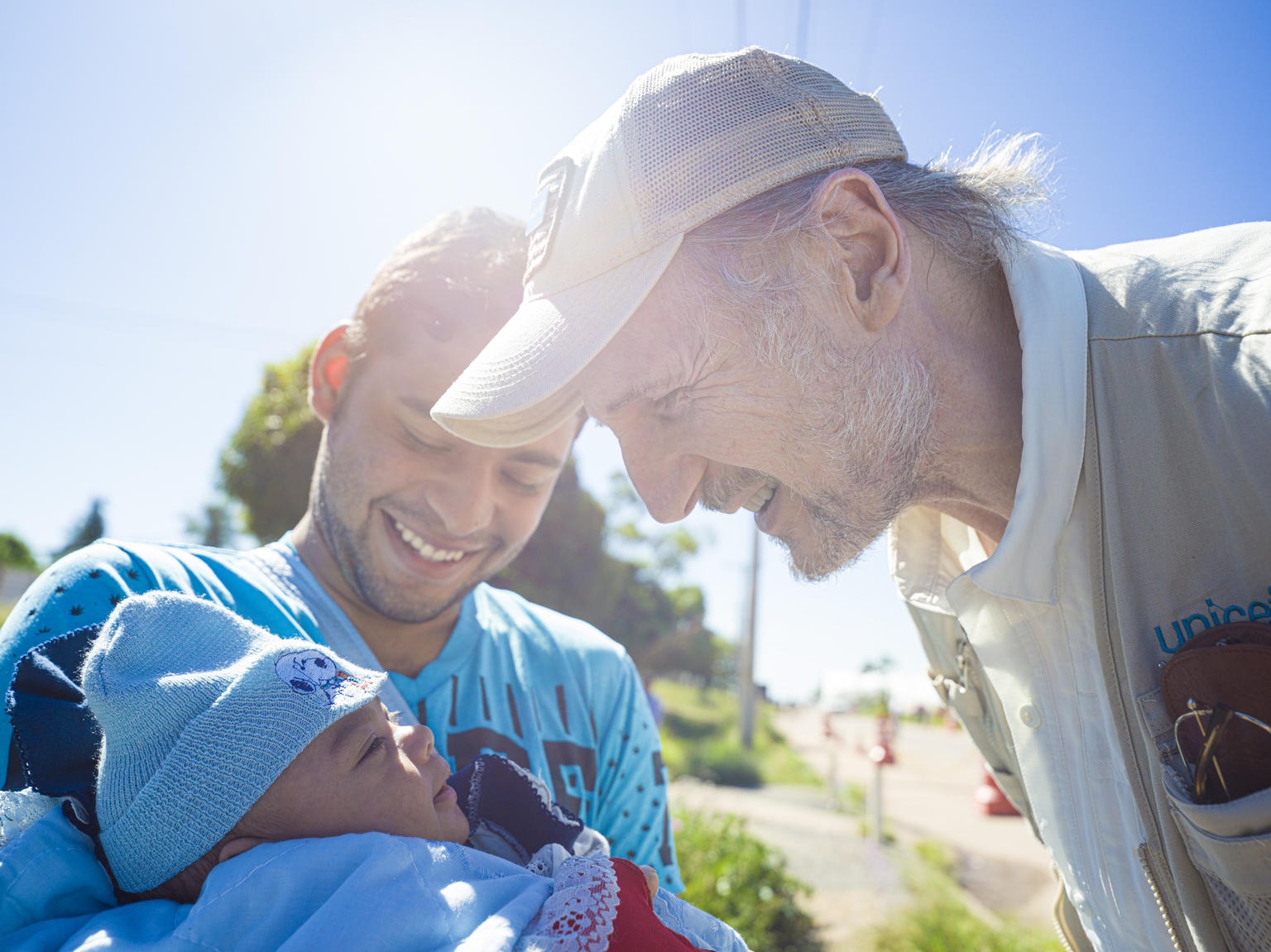Download photos, video and b-roll here: https://uni.cf/2QZljlO
DUBLIN/BOA VISTA/PANAMA/NEW YORK, 10 January 2020 – UNICEF Goodwill Ambassador Liam Neeson joined UNICEF in urging the international community to increase its support to refugee and migrant children from Venezuela in need of assistance across Latin America and the Caribbean. Neeson echoed the appeal after concluding a four-day visit to the Brazilian border region with Venezuela where he met with vulnerable Venezuelan children and families, as well as those from host communities.
Countries in Latin America and the Caribbean are already hosting about 3.9 million Venezuelan migrants and refugees in what has become one of the world’s largest migration flows. The number of families leaving Venezuela continues to rise. This year, over 1.9 million children, including both Venezuelan migrants and those from host communities, are expected to need assistance.
Exhausted and vulnerable
“I have spoken with Venezuelan families who crossed the border, many of them with children and babies,” said Neeson. “They are exhausted, vulnerable, and still in shock as they left everything behind them. As a father, my heart broke when I heard their stories. But I also saw hope in the eyes of refugee children who seized every opportunity to learn in a safe environment, grow healthy and eventually, rebuild their lives in Brazil.”
The actor travelled to the border crossing in Pacaraima where upon arrival, Venezuelans receive information on asylum applications and residency permits, and where they are given vaccinations if necessary. In Boa Vista, Neeson visited one of the largest shelters for Venezuelans in Brazil. More than 1,000 people, half of them children, are currently living at the site where UNICEF and its partners provide humanitarian assistance, including education, child protection services, health and nutrition, as well as water, hygiene and sanitation services.

The UNICEF Goodwill Ambassador participated in recreational and educational activities aimed at preparing children and adolescents for their integration into Brazilian schools. Amidst growing xenophobia towards Venezuelan refugees across Latin America, Liam Neeson joined an out-of-school holiday bootcamp that brings together Venezuelan and Brazilian adolescents to facilitate mutual understanding and foster friendships through sport and cultural activities.
“During my visit to Brazil, I saw the power of young Venezuelans and Brazilians coming together, living together. It reminded me of my experience during the conflict in Northern Ireland when I witnessed Catholic and Protestant children who became friends and broke the barrier of fear and misunderstanding. These memories came to my mind when I was listening to Jesus and Emily. Their friendship is a sign of hope for the future of both Venezuelan refugees and the communities hosting,” said Neeson.
Taking action
UNICEF teams on the ground in several countries affected by the migration flow are delivering humanitarian assistance in hot spots at the borders and along the transit routes. Together with local authorities and United Nations agencies in Ecuador, Peru, Brazil, Colombia, Guyana and Trinidad and Tobago, UNICEF is also scaling up its development response in urban settings and fostering the integration of Venezuelan children in host communities.
“One of the key measures to prevent the Venezuela migration crisis from escalating further is to invest in Venezuelan children and young people to unlock their potential,” said Bernt Aasen, UNICEF Regional Director for Latin America and the Caribbean. “Beyond lifesaving assistance, ensuring migrating children are integrated into the education, health and protection systems of the host countries is now critical. If given this opportunity, one day these children will be the ones to shape a more stable and prosperous region for all.”
By December 2019, only 41 per cent of the US$ 69.5 million needed last year had been raised. This year UNICEF is seeking US$64 million to meet the needs of about 633,000 children affected by migration from Venezuela, including children on the move from Venezuela and in host communities in six Latin American countries such as Brazil.
ENDS
#####




